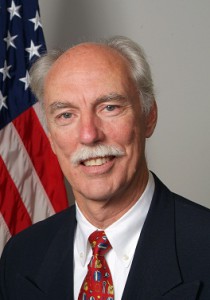We curate a digest of the latest news in our field for advocates, policymakers, community coalitions and all who work toward shaping policies and practices to effectively prevent substance use and treat addiction. Sign up here to receive weekly updates straight to your inbox.
Homeless alcoholic men openly drink at “wet houses,” where the goal is harm reduction instead of sobriety.
To reduce prescription drug abuse among seniors, SAMHSA is expanding a grant program targeting adults 60 and older who are at risk for or experiencing behavioral health problems. The grant also aims to reduce suicides among this group.
Taking the smoking cessation drug Chantix for a month before trying to quit smoking may boost success rates, according to a new study.
Synthetic drugs known as spice, K2 and bath salts, which mimic the effects of cocaine and marijuana, are a growing problem in the military, according to an article in the Honolulu Star-Advertiser.
Extremely overweight teenagers drink and use illegal drugs about as much as their peers, a nationwide survey suggests. But obese teens are more likely to smoke or chew tobacco.
Almost six million people die from tobacco use and 2.5 million from harmful use of alcohol each year worldwide, the World Health Organization reports.

Addiction is a disease that is hard to understand, explains Dr. Tom McLellan, Professor, Dept. of Psychiatry, and Director, Penn Center for Substance Abuse Solutions.
The U.S. Food and Drug Administration (FDA) announced it will regulate smokeless electronic cigarettes as tobacco products, treating them the same as traditional cigarettes. The decision comes after the FDA lost a court case in which it argued that the devices should be regulated as drug-delivery devices, which must satisfy stricter requirements.
An estimated 27,500 people died in 2007 from unintentional drug overdoses, many of them involving prescription opioids, according to a report that recommends doctors try other pain control options before prescribing opioid medications.
A new program is showing promise in helping mentally ill people quit smoking. The pilot program’s success is surprising therapists who have long assumed that people with mental illness are not interested in quitting smoking.
An Arkansas group that favors legalizing medical marijuana has gotten the state’s attorney general to certify their proposal’s ballot language. They will now need 62,507 signatures to get on the November 2012 ballot.
Children with attention deficit hyperactivity disorder are more likely to use substances including nicotine, marijuana and cocaine, and to develop substance use disorders, a review of 27 long-term studies concludes.
As part of the new government plan to reduce prescription drug abuse, the U.S. Food and Drug Administration is asking manufacturers of prescription painkillers to create materials for consumers about how to safely use and dispose of opioids.
Drinking too much alcohol appears to interfere with a surgeon’s skills even into the next day, according to a study that used a virtual reality simulator to test the theory.
Two Illinois state senators are encouraging their colleagues to pass two bills that would ban synthetic drugs known as bath salts, K2 and spice. The bills have already passed in the Illinois House.

Prescription drug abuse is a growing national epidemic. In a recent presentation, Dr. Leonard Paulozzi of the CDC reported that the number of unintentional overdose deaths per year involving opioid pain relievers nearly quadrupled from 1999 to 2007, rising from 2,900 to 11,500.
Calling the new fruity alcoholic drink Blast by Colt 45 “binge-in-a-can,” 17 attorneys general are asking the drink’s maker, Pabst Brewing Co., to stop marketing the beverage to underage drinkers and to significantly reduce the number of servings of alcohol in each can.
Every state could have a smoking ban in restaurants, bars and workplaces by 2020, the U.S. Centers for Disease Control and Prevention predicted this week.
The Pharmacy Board in Washington state has filed emergency rules that would ban the sale and manufacture of bath salts, which are being used as substitutes for cocaine and methamphetamine.
As a growing number of states increase tobacco taxes to raise revenues, violent gangs and drug traffickers are moving into the cigarette smuggling business, USA Today reports.
Fatal overdoses of prescription drugs are having a devastating effect in Ohio, The New York Times reports. In the last decade, fatal overdoses have more than quadrupled and are now more common than car crashes as a cause of accidental death in the state.
The Texas Senate this week passed a bill that would give immunity to underage drinkers who are seeking medical help in an emergency. The bill’s sponsor said it is aimed at minors who are afraid to seek help because they do not want to be charged with underage drinking.
Kidney cancer is both more common and aggressive in smokers compared with nonsmokers, a new study finds. Reuters reports that more than one in four smokers who underwent surgery for kidney cancer had advanced disease, compared with one in five nonsmokers.
Children whose parents have an alcohol use disorder are at increased risk of developing the disorder themselves, a new study finds. The risk appears to be greater for girls than boys.
A new government strategy aims to cut the use of prescription painkillers by 15 percent in five years. The plan includes doctor training, promoting prescription databases in all states and increased focus on rooting out illegal ‘pill mill’ clinics.